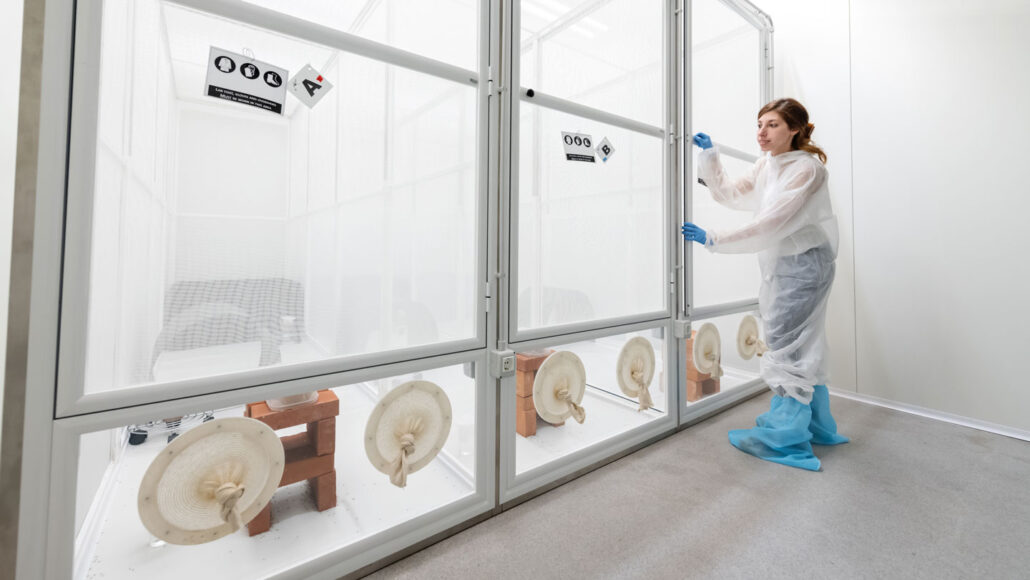Questions for “Should we use a genetic weapon against mosquitoes carrying malaria?”

Scientists are testing a gene-editing technique called a gene drive to stop malaria mosquitoes from reproducing. These test rooms are in a laboratory in Terni, Italy.
Courtesy of Target Malaria